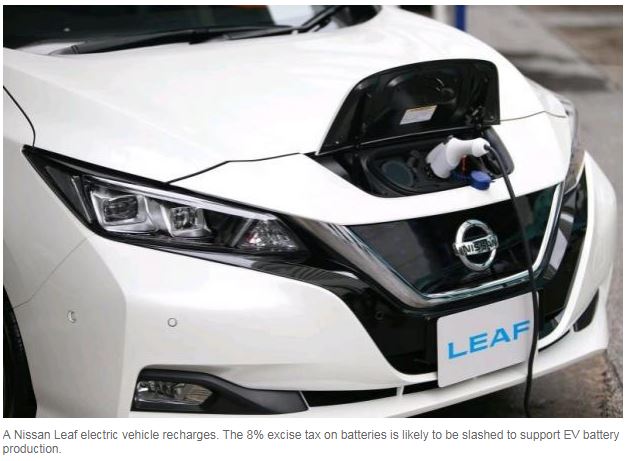Thailand: Tax cut eyed for EV batteries
The Excise Department is poised to cut taxes to encourage setting up electric vehicle (EV) battery plants in Thailand, says a source familiar with the issue.
The 8% excise tax imposed on batteries is likely to be slashed to support domestic EV battery production, but it’s too early to tell how big the tax cut will be because battery production costs and processes must be taken into account, the source said.
The department must consider whether the EV battery cell or module is imported for domestic assembly.
The source said batteries already installed in cars, under normal practice, are exempt from excise tax, as they are charged based on the car’s value, which would also apply to EVs.
The cabinet last week approved eliminating the excise tax for full EVs from Jan 1, 2020 to Dec 31, 2022, aiming to speed up manufacturing and reduce emissions.
The tax manoeuvre is meant to encourage 13 EV manufacturers who won promotional privileges from the Board of Investment (BoI) to bring forward EV launches from three years after being granted the tax privilege.
The waiver will only be offered to projects that won promotional privileges from the BoI.
The excise tax for promoted full EV projects is 2%. Investment projects that do not win BoI incentives are subject to an excise tax of 8% for full EVs.
Three brands currently make EVs locally. FOMM is selling EVs at 600,000-700,000 baht each, BYD’s EVs are priced at about 1 million baht, and Nissan’s Leaf has a price tag of 1.9 million baht.
EVs are one of the government’s 12 targeted industries identified as new engines of economic growth under the S-curve policy.
The source said tax is not the most crucial issue in pushing domestic production of EVs; the objective hinges on several factors, including charger stations, EV battery price, driving range, used EV prices and future electricity supply once EVs gain popularity.
Source: https://www.bangkokpost.com/business/news/1642376/tax-cut-eyed-for-ev-batteries


 English
English




